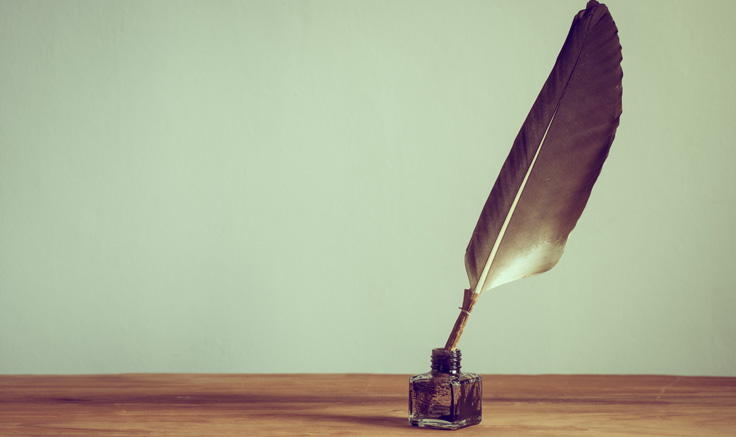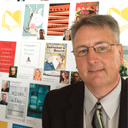
Purchase Tickets
Hot Off the Press: Rebel Bulldog
January 12, 2018

Rebel Bulldog: The Story of One Family, Two States, and the Civil War tells the story of Preston Davidson, a Northerner who fought for the Confederacy, and his family who lived in Indiana and Virginia. It is a tale that examines antebellum religion, education, reform and politics, and how they affected the identity of not just one young man, but of a nation caught up in a civil war.
Furthermore, it discusses how a native-born Hoosier who attended Indianapolis’s North Western Christian University (today’s Butler University) reached the decision to fight for the South, while detailing a unique war experience and the postwar life of a proud Rebel who returned to the North after the guns fell silent.
Author Jason Lantzer is well suited to tell Davidson’s story, as he works as assistant director, university honors program, at Butler. He received his undergraduate, graduate, and doctoral degrees from Indiana University, Bloomington. Here he talks about his work on Rebel Bulldog.
How did you become aware of Preston Davidson and his experiences during the Civil War? What inspired you to write a book about them?
In 2012 I was asked to teach a new honors seminar at Butler University. As the 150th anniversary of the Civil War was just getting underway, I decided to do a course on Butler and the Civil War, as the university opened its doors in 1855, had strong abolitionist roots, and already had a plaque commemorating those who had died in the war (which I passed nearly every day on my way into Jordan Hall).
After consulting with the university archives, I learned that there were lists of students who had gone off to fight in the war and that one of them, Preston Davidson, had actually fought for the Confederacy. Intrigued as to how a Hoosier ended up fighting in Virginia, I decided that when I actually taught the class that fall, I’d model historic research for my students – as the big assignment for them was to research at least one of their historic peers, and most of them would not be history majors. I picked Preston! I thought that maybe I’d have enough for an article. But the more I researched, the more I found. By the end of the semester, I had more than 100 pages of notes and knew I wasn’t done – meant rather than an article, I had a book on my hands.
What, if anything, did you learn about the war from writing about Davidson?
There are several things that come to mind. First, is just how interconnected people were during the 1850s/1860s, long before modern technology and social media made being connected a thing we take for granted. Part of this was that while the country was growing and expanding (in terms of population and size) it was also small (31 million as to approximately 310 million today). In other words, people knew who you were, and who you were mattered. In the case of the Davidsons, this meant that in Virginia (where Preston’s father came from), the family knew everyone in Lexington – including John Letcher (the state’s wartime governor), Thomas “Stonewall” Jackson (pre-war professor at the Virginia Military Institute, where Preston’s brother went to school for a semester alongside a cousin – just in time for John Brown’s raid), George Junkin (president of Washington College, the alma mater of Preston’s father and uncles, as well as where he was attending alongside a cousin when the war broke out).
On the Indiana side, the Davidsons (obviously) knew people like Ovid Butler and Calvin Fletcher, but Preston’s maternal grandfather was none other than (former) Governor Noah Noble, which meant that growing up, Preston was at the epicenter of Whig politics (including having Henry Clay spend time at his house). Preston’s mother and father were founding members of Second Presbyterian church in Indianapolis and were married by Henry Ward Beecher – and Beecher brought his family to visit the Noble-Davidson homestead often, including bringing his sister, Harriet, to visit a now freed former Noble family slave named Tom Magruder who lived here in a cabin, and was known around the city as Uncle Tom.
All those connections reminded me that while we often think of war (including the Civil War) in abstract terms – whether about battles or ideals – when the fighting started, the clichés about families being torn apart, and communities reeling from news from the front truly mattered in ways we often struggle to understand, because these people knew each other in ways we don’t always appreciate.
Another interesting aspect would have to be how Preston saw himself/others saw him. Despite his Hoosier birth and schooling, he self-identified with the cause of the Confederacy to such a degree that he returned to the front twice after being wounded (the first time, knocking him out of the war for over a year), and retained that identification even after returning to Indianapolis once the war was over. At the same time, considering that he was court-martialed over bacon (!) in the closing months of the war, and it is obvious that despite his war record, familial connections, and the need for manpower the Confederacy had as 1864 gave way to 1865, in reading the transcript it is obvious that not all the Confederates saw him as one of them.
What did you learn about the early history of Butler University?
Probably the biggest thing was how much its original name mattered. While we celebrate the founding with the start of classes in 1855, the charter was written in 1850 – in the midst of the Compromise of 1850, and its original name North Western Christian University mattered. “North Western” was not just an homage to a geographic location, but also to the Northwest Territorial Ordinance (and thus, making a statement about slavery). “Christian” was not just a generic religious reference, but also an indication that it was to a Disciples of Christ (Ovid Butler’s denomination) institution of higher learning – a place where Northern Disciples could send their sons and daughters as opposed to the only other Disciples affiliated college, Bethany, which was in Virginia (and thus in a slave state). And “University”” was a statement of intent –and a bold one at that – considering this was a start up, and its founders were launching a school that had grand ambitions.
Beyond that, again, was how interconnected its first classes were. These students knew each other, felt accountable to one another, and almost to a man, went off to fight. That the university was able to survive the war, is a testament to Ovid Butler (and others) skill and determination to make sure that it did.
Is there any other figure from the war that caught your interest? If so, why?
The entire Davidson family! Preston’s older brother Dorman has an almost equally intriguing story. Both brothers enrolled in NWCU in 1856, while Preston was by far the more outgoing (joining a fraternity and a literary society, for example), Dorman was likely the more studious. He was also the first to go to Virginia (as part of their father’s hope to have his sons educated in both the North and the South because he believed their generation would have to solve the sectional problems facing the nation). He was at VMI when John Brown raided Harpers Ferry (VMI cadets, including their cousin, provided security in the weeks leading up to Brown’s execution), and his feelings of unease meant he came back to Indianapolis after only a semester. He wanted to enlist in the Union cause (as his Uncle Winston Noble did), but his father forbade it – because he wanted him at home, feared for his son’s life, and because Preston had disobeyed him and joined the fight on the other side). Alexander Davidson died in 1863, and though Dorman had newfound responsibilities, when Indiana was invaded by Rebel general John Hunt Morgan, he answered the call. That after the war, their two sisters both married veterans (one Confederate, the other Union), and that the family still (often) lived with or near one another, adds yet another layer to the family dynamic.
Are you writing another book? If so, what is it about?
I just finished a book on Walt Disney and its uses of folklore, myth, and history to create a common culture through its films and parks. I’ve started preliminary work on Dwight Eisenhower—I’m intrigued by Ike’s reaction to the Holocaust, and if/how it influenced his foreign policy as president. And while it might not seem like it, both Disney and Eisenhower might speak to something larger about how important the Midwest was (and is) in shaping American identity during the twentieth century (as both were born and raised in the Midwest). I’m also thinking, closer to home, about looking at organized crime in Indiana during the Prohibition era. So, we’ll see what comes next!









